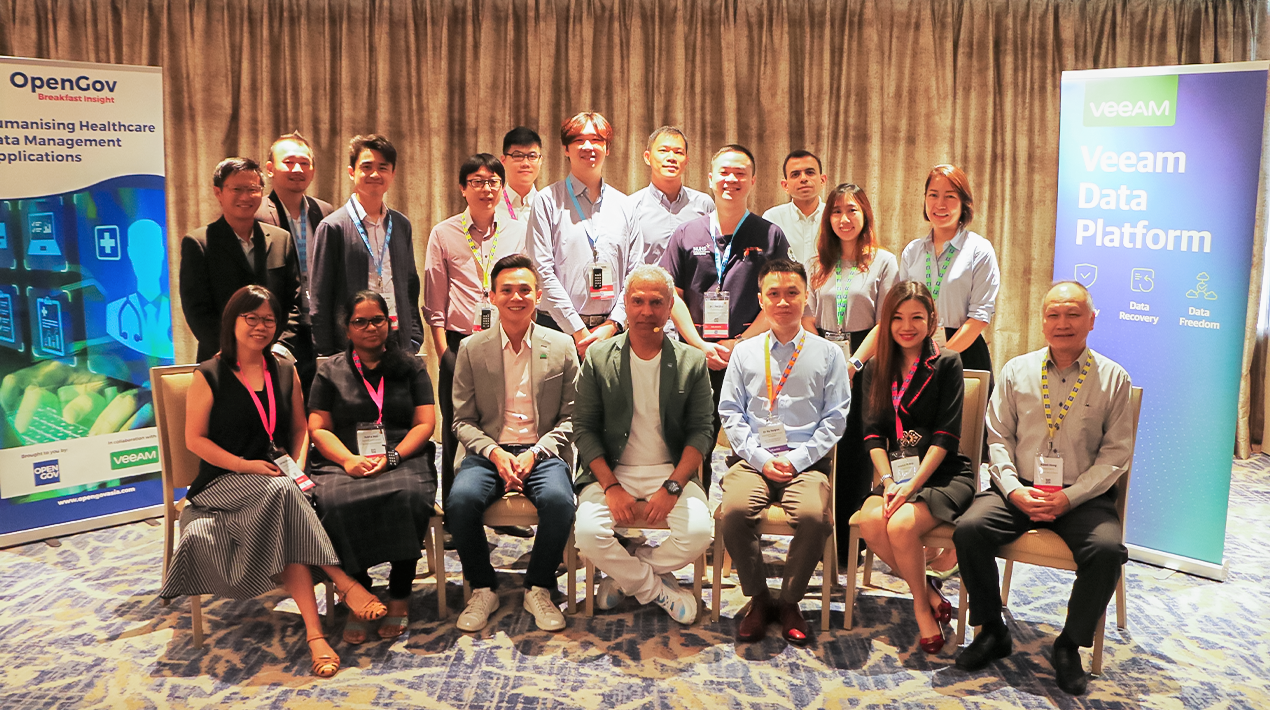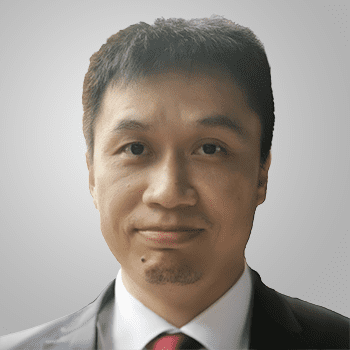
|
Getting your Trinity Audio player ready...
|
Data management applications have become indispensable instruments for medical professionals and institutions operating in the rapidly evolving healthcare sector. These apps facilitate the storage, access, and analysis of patient data, streamlining workflows, and significantly enhancing overall healthcare efficiency.
Amid the growing emphasis on technological advancements, it is essential to maintain a patient-centric approach, valuing patients as people rather than just focusing on clinical outcomes. Data management tools offer significant advantages in terms of efficiency and accuracy, but it is essential to remember that patients are not merely data points or numbers. Each patient is unique, with their own set of needs, emotions and concerns.
To achieve this, it becomes crucial to humanising these applications and tools in the healthcare ecosystem, incorporating empathy and understanding. By doing so, organisations can ensure that patients’ needs, experiences and well-being are central to design and implementation, ultimately leading to better overall healthcare outcomes and patient satisfaction.
Healthcare data management applications should be designed to be more personable, allowing patients to actively engage in their care. Patient portals and user-friendly interfaces should enable people to see their health records, test results and treatment plans easily.
Patients who have the necessary access to information are better able to comprehend their diseases and engage collaboratively with their healthcare professionals. By creating accessible and patient-centric platforms, individuals can take a more active role in managing their health and making informed decisions about their care.
Effective communication forms the foundation of exceptional healthcare. Humanised data management applications incorporate features that facilitate seamless communication between patients and their healthcare providers.
Patient-centric features can enhance interactions and collaboration between patients and healthcare professionals. These capabilities include secure messaging, video consultations, and real-time updates on medical reports. By enhancing communication, these applications lead to greater patient satisfaction and improved health outcomes.
Access to relevant data and improved data management empowers healthcare professionals to make better judgments and provide superior patient care. Automated data management procedures save time and effort, allowing professionals to focus more on patient care rather than administrative tasks. This streamlined approach enhances overall efficiency and ensures that patients receive the attention and treatment they need without unnecessary delays or distractions.
By prioritising data protection and privacy measures, patient information remains safe and confidential. Such secure applications enable a comprehensive view of a patient’s health history through the seamless and protected integration of diverse healthcare data sources.
The OpenGov Breakfast Insight on 27 July 2023 at Voco Orchard Singapore aimed to provide valuable knowledge and insights to the Singapore Healthcare industry, focusing on key topics such as digital integration, cybersecurity, cloud and data governance.
The session was designed to equip healthcare professionals and institutions with the latest trends and best practices in these areas, fostering a more human adoption of technology and enhancing overall efficiency and security within the healthcare sector.
Opening Remarks

The pandemic served as a pivotal moment for people to realise the significance of health, says Mohit Sagar, CEO and Editor-in-Chief of OpenGov Asia. The far-reaching impact of an illness with no boundaries was starkly evident, posing a threat to countless lives and capturing global attention.
“This event is a call to all people and health institutions to rethink the current health system and look for new ways to strengthen and humanise health services,” Mohit warns the delegates.
During the epidemic, and in its aftermath, the demand for data management software is becoming increasingly vital for medical staff and healthcare organisations. They face the challenge of adapting to ever-changing circumstances, and effective data management solutions are crucial in facilitating their response to the evolving healthcare landscape.
These mechanisms play a crucial role in streamlining patient data flows, enabling quick access, and analysing vital information necessary for providing optimal patient care. However, these applications need to go beyond being mere technical aids; they should embody genuine concern and care for every individual in need of medical attention.
Mohit stressed the critical importance for healthcare professionals and services to recognise that every patient is a unique human being with their own individuality and life story, going beyond just medical data and statistical figures. The primary goal of these programmes is to ensure that patients are treated with decency, honesty, and kindness throughout their healthcare journey.
Data management applications must be designed with a human perspective that goes beyond mere technical functionality to encompass qualities of empathy and understanding in every facet. These applications need to be crafted with a deep appreciation for the individuals whose medical data they handle, appreciating that each patient is far more than just a collection of data points.
Mohit opines that there are several factors to take into account while trying to humanise data management solutions. At the outset, empowering patients by providing quick access to health information can be achieved through an intuitive patient portal that offers easy access to their health records, test results, and treatment plans.
“Patients who are actively involved in their care tend to be more committed and have a better understanding of their health conditions,” he strongly believes.
Excellent communication between patients and medical professionals is the key to providing top-notch healthcare. Humanised data management applications must prioritise features that enable secure and efficient communication to facilitate seamless interaction between patients and healthcare providers.
“Certain features can enhance the relationship between patients and healthcare providers,” Mohit observes. “Secure text messages, video consultations with medical professionals, and real-time updates regarding individual medical reports are some examples of features that can achieve this.”
These applications need to provide more personalised and tailored services to address diverse health concerns, considering that each individual has a unique background and specific needs. This means taking into account individual factors when offering treatment suggestions or relevant medical data.
Amid significant cyber changes and the ever-expanding digital landscape, data security has become a paramount concern in the development of health applications, Mohit points out. With the proliferation of interconnected devices and the increasing reliance on technology for healthcare services, the volume of sensitive medical data being generated and transmitted has surged.
This escalating data flow raises the stakes for ensuring robust data protection measures are in place to safeguard patients’ privacy and confidentiality.
“Given the availability of sensitive medical data, strong safeguards for patients’ private information must be in place. When patients feel that their data is safe and protected, they are more likely to trust and actively participate in their treatment process,” Mohit concludes.
Welcome Address

Casa Goh, Country Director of Singapore at Veeam, highlights that as businesses grow and evolve, their data systems tend to become more complex, often comprising a mix of on-site, cloud, and hybrid data centres, making it challenging to manage and consolidate data from various sources, leading to sharing issues and increased maintenance costs.
Casa believes data management has become more challenging than necessary for companies due to the multitude of pressing issues they face. The increasing adoption of cloud computing has led many companies to shift their data workloads to the cloud or contemplate doing so.
“This change has some benefits, like being able to grow and save money,” Casa explains. “But it also creates problems with data migration, synchronisation and making sure data is the same in both on-premises and cloud settings.”
In the digital world, numerous cyber threats, including data theft and ransomware attacks, pose significant risks to businesses. As companies prioritise safeguarding private information, implementing robust security measures and data encryption methods becomes crucial. However, while essential for protecting sensitive data, these security measures can also introduce complexities in the process of managing data.
In traditional data management, chores like data entry, data cleaning, and data integration are often done by hand. Not only do these processes take a lot of time, but they are also prone to mistakes. Data handling can be slower and less accurate when done manually and it can be hard to keep up with the growing amount of data.
Within a company, data is often spread out over many different systems, databases, and applications. Integrating these different sources of data and making sure that the data is consistent can be a difficult and time-consuming task. This can lead to data silos, which make it hard to view and analyse data thoroughly.
Medical technology is rapidly evolving, introducing wearable devices, remote patient tracking, and telemedicine, among other innovations. These technologies generate vast amounts of sensitive patient data, making it essential to prioritise patient privacy and adhere to data laws. To achieve this, data protection measures must be implemented differently to ensure the confidentiality and security of patient information.
According to Casa, the key trends necessitating a different approach to enhance data protection are as follows:
- A surge in demand for global delivery
- Increasing demand for telehealth and remote clinical trials
- The industry’s focus on personalised healthcare and therapeutics
- A significant shift towards cloud adoption
Moreover, the Health and Life Sciences industries are undergoing a digital transformation, revolutionising healthcare delivery and research methodologies. However, the complete integration of local and national healthcare systems’ assets and knowledge is still in its nascent stages.
Even though the use of digital tools for patient care, diagnosis, and data analysis has come a long way, there are still problems connecting different parts of healthcare and sharing important information.
As these industries continue to adopt digital innovations, the possibility for better collaboration, better patient outcomes, and ground-breaking research grow. This has led to more efforts to speed up the integration of digital assets and knowledge on a larger scale.
Bad cyber actors are increasingly targeting healthcare and life sciences organisations worldwide. As a result, the industry is rapidly shifting its focus from solely preventive measures to prioritising asset security and implementing quick recovery strategies. This approach aims to ensure continuous operations and minimise disruptions caused by potential cyberattacks.
Recognising the significance of patient data, medical research, and essential services, healthcare and life sciences companies are intensifying their efforts to implement robust security measures to safeguard their digital assets. Additionally, they are proactively establishing resilient systems and backup plans to ensure a swift recovery and restoration of operations in the event of a hacking incident.
“This shift toward asset security and quick recovery is important for keeping operations going and giving patients, researchers, and other stakeholders trust in a cybersecurity landscape that is becoming more dangerous,” Casa believes.
Hybrid cloud has become an integral aspect of the IT landscape, as specific workloads in institutions cannot be fully transitioned to the cloud. Acknowledging this reality, companies face challenges in effectively managing hybrid cloud delivery while ensuring the safety of valuable assets, all within their conventional 24/7/365 operational environments.
The hybrid approach allows institutions to strike a beneficial balance between on-premises infrastructure and cloud services, optimising speed, scalability, and cost-effectiveness for various workloads. However, seamlessly integrating and securing data and applications across these diverse settings proves challenging, making it difficult to maintain smooth operations in this dynamic environment.
As the hybrid cloud model continues to change, institutions must adopt new strategies, strong security measures, and flexible management methods to use it to its fullest and take advantage of its benefits.
According to Casa, Veeam’s comprehensive data management and protection options play a pivotal role in ensuring smooth business operations. With features such as data security, data recovery, and data freedom, Veeam enables companies to concentrate on their core tasks, explore new opportunities without data loss concerns, and thrive in an increasingly data-driven environment.
The worst kind of disaster is ransomware. In the past year, 85% of businesses have been hit by ransomware at least once, reveals Casa. Of those, 19% were able to get their data back without paying the ransom, while 33% paid the ransom but didn’t get their data back.
“Besides, the sensitive nature of patient data makes healthcare companies a prime target for ransomware attacks,” says Casa. “Veeam uses advanced means to protect against ransomware and helps restore data to a time before the attack.”
Veeam provides fast and reliable backup and recovery solutions for virtualised environments. Its backup mechanism is based on images, enabling a quick and effortless recovery process. Additionally, Veeam offers options for high availability and fault tolerance, ensuring critical systems and data remain accessible even in the event of hardware or software failures.
Veeam’s platform is easy to use and has a simple layout that makes backup and recovery easier. IT administrators will find it easier to manage and keep an eye on their data protection jobs. Veeam offers a central place to handle your data across different cloud platforms. This makes it easier to keep track of and control data assets.
“You can easily move data between cloud environments and on-premises systems using Veeam Data Freedom,” Casa explains. “This flexibility is important in the fast-changing business world of today, where companies often use more than one cloud provider or keep a hybrid IT system.”
Moreover, Veeam’s hybrid/multi-cloud options empower businesses to select the most cost-effective cloud services for specific workloads, preventing vendor lock-in. With Veeam’s data management solutions, companies can establish efficient disaster recovery strategies across multiple clouds, ensuring continuous operations even in the event of data loss or system downtime.
The Health Insurance Portability and Accountability Act (HIPAA) is a crucial law that safeguards information and data in the healthcare domain. Veeam’s advanced solutions for protecting medical records assist healthcare organisations in meeting these compliance requirements and ensuring the security of private patient data.
Regularly backing up important medical records is essential to prevent data loss from hardware failures, human errors, or cyber threats. Veeam’s solutions ensure that hospitals and clinics can swiftly recover medical data, thereby maintaining seamless patient care and smooth business operations.
Veeam’s solution could have features like “immutable backups” that make it impossible to change or delete backups for a certain amount of time. This adds an extra layer of safety against data being changed or deleted.
In offering all these options, Veeam allows organisations to showcase their commitment to securing sensitive information, building trust, and upholding a positive reputation by implementing their robust data security measures.
“By prioritising data protection, they not only safeguard valuable assets but also demonstrate their responsibility towards their stakeholders and customers,” Casa concludes “This emphasis on data security reinforces their credibility and reinforces confidence in their ability to handle sensitive information with utmost care and integrity.”
Knowledge Insight

Dr Hu Yanyan, the Deputy Director of Architecture and Development at the MOH Office for Healthcare Transformation (MOHT), recognises the significance of humanising health management data applications.
In today’s world, where data has acquired the status of a valuable resource akin to “oil,” it becomes all the more crucial to ensure that these applications are designed with a human touch.
As one of Singapore’s foremost healthcare practitioners, Dr Hu Yanyan acknowledges the country’s commendable healthcare system, which delivers exceptional health outcomes while remaining accessible and affordable for its citizens.
He discloses that the MOHT was established to drive the restructuring of Singapore’s health system, facing both challenges and opportunities. MOHT concentrates on several long-term initiatives with the potential to bring fundamental improvements to health promotion and treatment.
Furthermore, MOHT collaborates with partners to design and test new initiatives. They also work together with the Ministry of Health (MOH), AIC, IHiS, and other stakeholders to develop essential expansion tools, including technology, analytics data, financial planning, and incentives.
Additionally, Singapore has taken proactive steps to leverage cloud technology for data storage and security, intending to enhance customer satisfaction.
“MOHT seeks to combine all of this into new systemic solutions that are effective from start to finish and have a major impact on health care and outcomes,” he explains. “MOHT has made significant progress in implementing data security measures for its patients.”
Dr Hu places great value on safeguarding and maintaining patient health data confidentiality. With the ever-increasing reliance on technology and data in the healthcare sector, it becomes crucial to ensure that patient information remains secure and protected from unauthorised access.
By implementing robust data security measures and stringent access controls, the MOHT aims to maintain the trust and confidence of patients, knowing that their personal health information is handled responsibly and only accessible to those with proper authorisation.
Before transferring patients’ data to the cloud, MOHT takes the necessary steps to carefully analyse the data. This process involves identifying which data should be retained, managed or migrated to the cloud.
“A deep understanding of the data serves as a strong foundation for designing an appropriate security strategy that aligns with the level of sensitivity associated with each data element,” Dr Hu knows from experience.
Having this understanding will help determine the relevant data elements required to address these challenges effectively. The first stage for organisations, according to Dr Hu, is to identify the specific data necessary to achieve their objectives and support their business processes. This process begins by clearly defining the questions that need to be answered or the problems that need to be solved.
Dr Hu also underscored the criticality of understanding data security requirements. In an ever more connected information technology environment, data security holds the utmost significance for him. The organisation’s data encompasses valuable and sensitive customer personal information, financial data, company secrets, and other strategic information.
Safeguarding this data from unauthorised access or breaches is a top priority to ensure the trust of customers and maintain the confidentiality of critical business assets. As a result, ensuring data security is a primary concern in protecting this precious asset from potential threats and vulnerabilities.
The level of data security must vary based on the type of data being processed and the sensitivity of the information it contains. Different types of data require different levels of protection to ensure appropriate measures are in place to safeguard the confidentiality, integrity, and availability of the information.
This approach allows organisations to tailor their security strategies according to the specific needs and risk profiles of the data they handle. More sensitive systems, such as medical data, personally identifiable information, or corporate secrets, necessitate higher levels of security to prevent unauthorised access and misuse of the data.
Dr Hu stressed the importance of companies carefully determining the appropriate level of security for each type of data they handle. By understanding the varying sensitivity levels of their data, organisations can confidently proceed to the stage of building robust and competitive data solutions. This understanding allows them to implement targeted security measures that ensure data protection while still enabling innovative and efficient data-driven solutions in the healthcare sector.
As per Dr Hu, this stage is crucial for addressing the numerous challenges and requirements that organisations face while managing data and information technology. During the design process, several key criteria must be thoroughly examined to construct an effective solution that aligns with the existing corporate goals and needs.
To start with, Data Architecture forms the primary foundation that needs to be addressed while creating durable and long-term solutions. It outlines how data will be structured, stored, managed, and accessed within the organisation’s context.
Additionally, Technology Architecture is a crucial factor to consider when developing data solutions. Dr Hu explains that it involves the selection and integration of hardware, software, networks, and other technology platforms that facilitate data processing and storage.
On the other hand, Security Architecture, an integral part of data solutions, is also of utmost importance. Its goal is to safeguard data from potential attacks and security hazards. To address potential security threats, data security, encryption, access authorisation, identity management, and robust data protection methods must be deployed.
Finally, processes and operations are critical components in creating successful data solutions. Dr Hu emphasised that the stages and workflows involved in managing data and adopting technology are referred to as processes. Having efficient and structured processes will aid in optimising data and technology usage while enhancing productivity and overall effectiveness.
Dr Hu firmly believes that by following these three procedures, healthcare professionals can make patient data security their top priority and ensure its protection. He reiterates the importance of understanding the need for data security, assessing the sensitivity of the information and being aware of the potential risks of data breaches.
According to him, taking this critical first step establishes a strong foundation for safeguarding and preserving patient health data and promoting trust among patients and stakeholders in the healthcare industry.
Dr Hu also advocates for collaboration among relevant professionals and stakeholders. By leveraging the collective expertise and insights of various stakeholders, healthcare organisations can develop data-driven solutions that not only address current challenges but also stay adaptable to future advancements and changes in the industry. This collaborative approach fosters a culture of innovation and enables the healthcare sector to keep pace with the ever-changing landscape of technology and data management.
“In an evolving digital environment, organisations can create innovative and sustainable data solutions that have a positive impact on company continuity and success by working together,” he concludes.
Closing Remarks
Casa Goh appreciated the valuable contributions and knowledge shared by the attendees, urging them to embrace technological collaboration as a means to leverage each other’s assets, skills, and competencies for mutual business benefits.
“Collaboration provides partners with access to specific information, abilities, and technologies that they may not possess, leading to the development of more comprehensive and innovative solutions,” Casa is convinced.
He emphasised the significance of maintaining the human element at the core of any innovation, development, or deployment process. It is crucial in creating a more patient-centric and user-friendly healthcare system and healthcare data management applications. By integrating human-centred design concepts and empathetic approaches, healthcare data management software can better cater to the needs of healthcare professionals, patients, and other stakeholders.
Mohit stressed that cloud-based solutions offer essential attributes such as accessibility, collaborative infrastructure, security, and data analysis capabilities. Implementing modern data protection and solutions can result in enhanced patient care, increased productivity and efficiency, reduced costs, and improved organisational security.
“The implementation of smarter data management techniques can result in enhanced productivity and efficiency, freeing up healthcare personnel to concentrate on giving patients high-quality personal care,” Mohit explains.
He agrees that partnerships are vital for efficiency and more sustainable development. Technological partnerships can be a strategic approach for companies to foster growth, enhance competitiveness, and navigate the complexities of the ever-changing technological landscape.
However, it’s essential for partners to have clear objectives, shared values, and open communication to make the collaboration successful and mutually beneficial.
“By embracing cloud-based solutions and modern data management techniques, we can unlock a new era of enhanced patient care, increased productivity, and improved organisational security,” says Mohit. “In this journey, strategic partnerships will be vital to speeding up progress.”
















